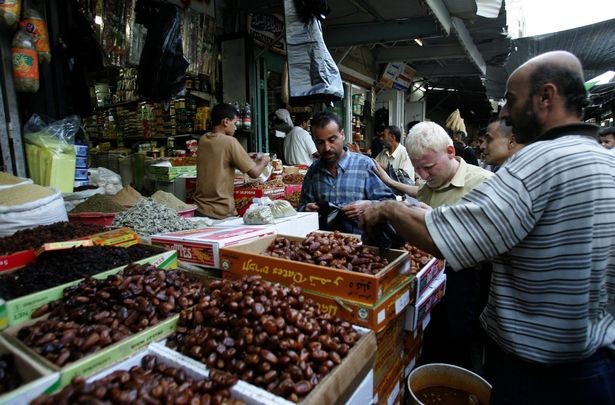
Ramadan in Morocco: Food Prices Up 0.6% Amid Socio-Economic Crisis
Morocco’s High Commission for Planning (HCP) reported a 0.6% increase in food products during the holy month of Ramadan.
The HCP forecasts a further increase in the second half of the holy month compared to the first weeks.
The figure will increase from 0.4% to 0.8% between the two periods, the HCP explained.
The statistics show that fish, eggs, and citrus will record the highest price increases.
HCP expects fish products to increase by 5.6% and 5.8%, respectively, during the first and second halves of Ramadan.
The prices of eggs and citrus fruits will reach 2.5% and 2.3%, respectively, during the month.
The HCP already recorded a 1.9% increase in the prices of fresh fruits.
Prices of poultry and red meat, as well as vegetables, did not experience any remarkable changes due to Ramadan, the HCP said.
Tomatoes are the only exception.
Moroccans consume tomatoes remarkably during Ramadan as they constitute a necessary element in foods popular during the holy month, including Harira.
Many Moroccans serve harira during iftar (breakfast) after sunset.
The increase of food products during Ramadan comes at a time when Moroccans are complaining about a socio-economic crisis driven by COVID-19-induced challenges.
Morocco’s government recently decided to maintain a night curfew during Ramadan, a month when cafes and restaurants usually record their peak activity at night time.
Ramadan 2020 and 2021 are unprecedented due to COVID-19.
Cafe owners have called on the government to suspend the night curfew, holding it responsible for the crisis their workers will suffer during the month.
The government replied by extending financial aid to cafe owners, a decision that did not receive unanimous support.
HCP claimed that the changes in households’ rituals, especially in terms of food consumption, reflected the increase in consumer prices during Ramadan.
The data also argued that most sectors are witnessing a decrease in production due to the decrease in the number of working hours.
During Ramadan, Morocco’s public sector adopts a continuous working shift from 9 a.m. to 3 p.m. The time schedule differs from one sector to another.
HCP cited a national survey on working hours. The survey indicates that the number of working hours per day decreases by 23%. The decrease is estimated at 1 hour and 12 minutes for men and at 19 minutes for women.
The time people allocate for shopping and household activities increases compared to normal months, particularly in major cities.
Consumption rituals also change during the holy month, according to HCP findings.
